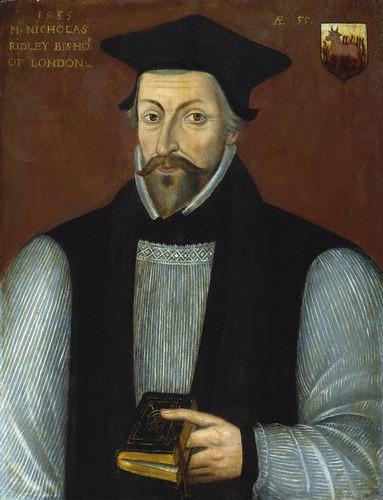
I have been involved in a discussion with a Muslim who has quoted the Inquisition as an example of Catholic misbehaviour. I had to remind him to check his sources. It should not be forgotten that the origin of most of what was and is said about the Inquisition is the Protestant polemic "Foxe's Book of Martyrs", published in England in 1563 under the title Acts and Monuments. This was not, to say the least, a neutral account but was part of the ongoing attack on Catholicism which had been in progress in England since the 1520s. That attack was primarily a land grab by the aristocracy and had very little to do with religion.
The church in England had for long held land for its support, on the basis that it was the church that provided what are now regarded as the functions of a welfare state. This was not a situation that was acceptable to the aristocracy, which had succeeded in ridding itself of the obligations that went with the land allocations following the Norman Conquest. Eventually, the English peasantry was evicted in its entirety, in the two great land thefts known as the English Inclosures and the Scottish Clearances.
Thus there was a powerful incentive in England to demonise the Catholic church. The excesses of the Protestants in England were far worse, first under Henry VIII and then under Elizabeth, when Catholics underwent a persecution as cruel as anything that happened to Christians under Communism. Remember that Foxe was writing four years after Elizabeth came to the throne, when the battle for hearts and minds was in full flow and those in power were anxious to blacken the reputation of the Catholic church in any way they could.
Recent scholarship by Eamon Duffy and others has shown that most of what was said is false or greatly exaggerated. It is also wrong to judge actions that took place 400 years ago by standards that are the norm today in the secular liberal democracies of northern Europe. Following the death Henry VIII, there was a Regency, the king, Edward VI, having come to the throne in 1547 at the age of 12. Those in real control were anxious to retain the valuable church property they had been given as a reward for the king's support. When Edward VI died in 1553, Mary became queen. She was anxious to reinstate Catholicism as the national religion but the aristocrats were frightened that they would lose what they had gained. An ongoing battle was fought against Mary's efforts, even though they had general popular support.
Thus the execution of the Protestant bishops at Oxford, Cranmer, Latimer and Ridley (illustrated) was as much from political as religious motives and the Queen's Consort (King Philip II of Spain), was opposed to the decision. When anyone quotes the alleged excesses of the Inquisition, they are unwittingly taking sides in an ancient English battle.
The story has an important postscript. That battle is far from over in England itself. Following the seizure of church lands, there was great poverty, since the equivalent of a welfare state had been dismantled. This was the start of the public sector welfare system which continues to run today, unchanged in its essentials.
Amongst the church lands were those belonging to Westminster Abbey. These soon proved to be extremely valuable and fell into the hands of an aristocrat by the name of Grosvenor, whose descendant, the Duke of Westminster, owns them today. It comprises much of Mayfair and Belgravia. The Duke is the richest man in Britain, wealthier by far than even the Queen. He is a Knight of the Garter and for many years had a hign position at the Ministry of Defence, despite a complete lack of talent and ability.
This means that there is still, in England, a powerful movement trying to resist the Catholic church. Mostly it operates through the structures of Freemasonry. It is no accident that many of the British Royal Family and aristocrats such as the Duke of Westminster are leading Freemasons.
This may seem like a digression, but the point is that sources must be, first known, and second, checked for impartiality.
Kommentarer
If the process of St Joan of Arc was somehow not totally under the English system, it was very unlike the late fourteenth C. French Inquisition, with Franciscan or Dominican Inquisitors, and very assimilated to the recent English system.
Actually Cauchon bishop of Beauvais was morally unsure if he could act as an Inquisitor, and if he could be the judge for St Joan of Arc. He asked the University of Paris, they affirmed, one 14th of July. Which later they regretted.